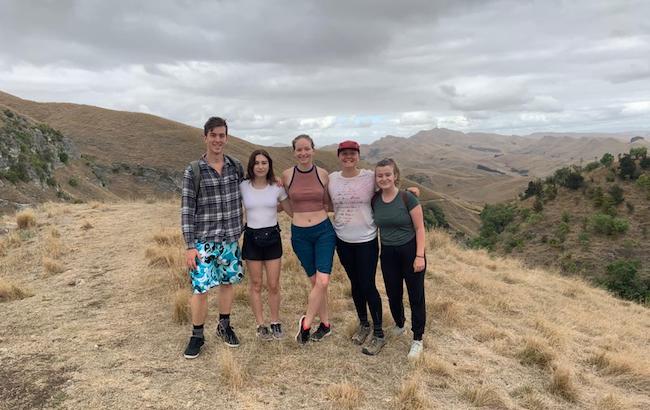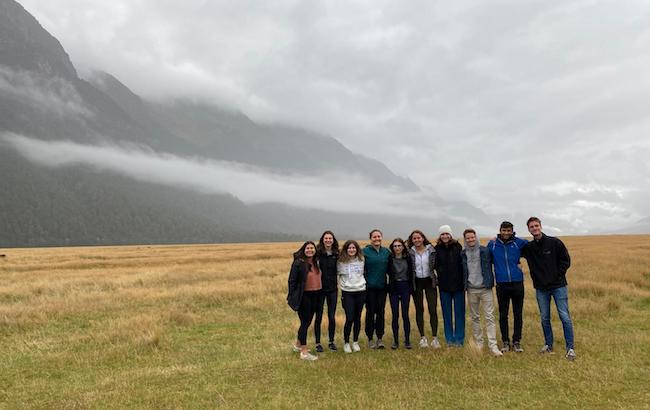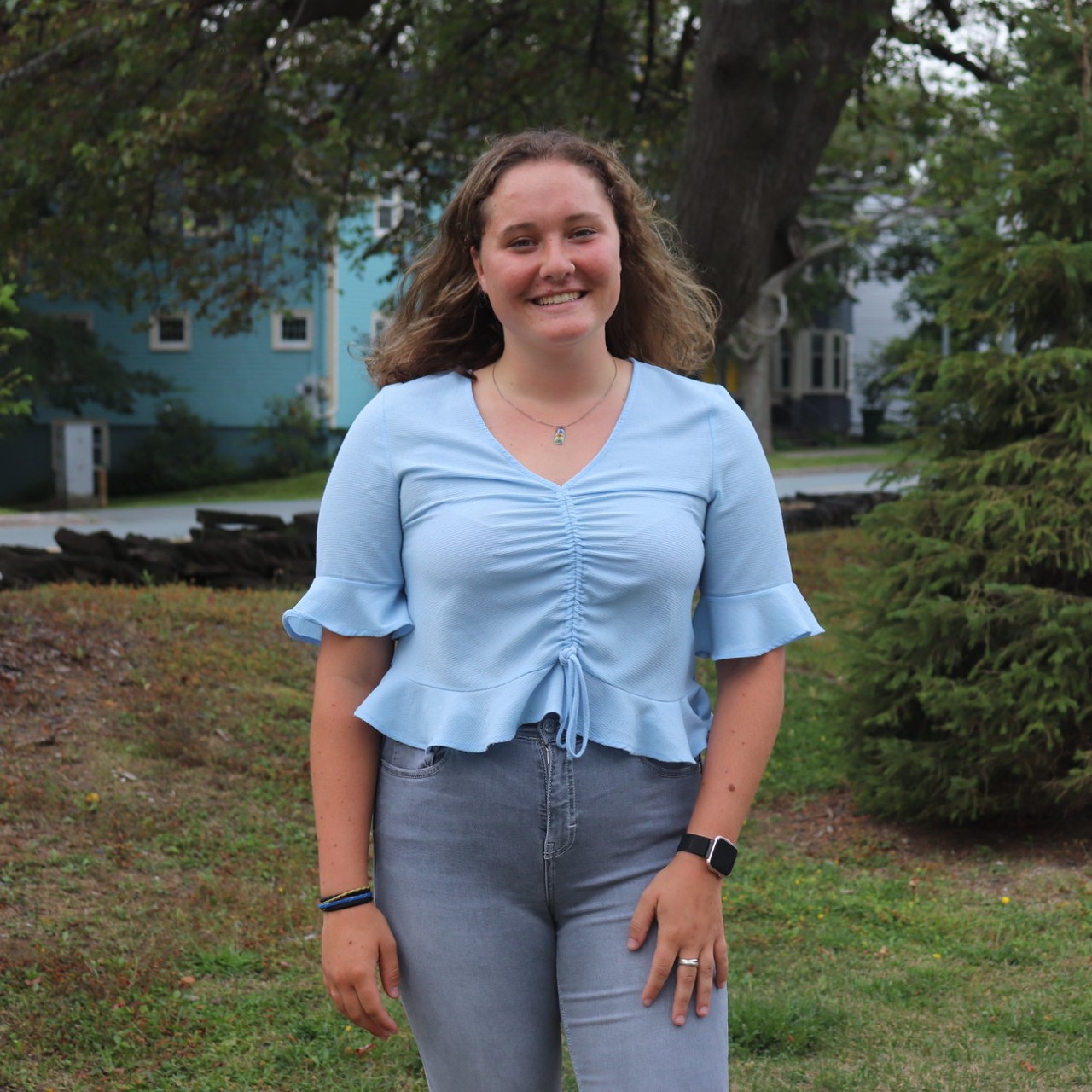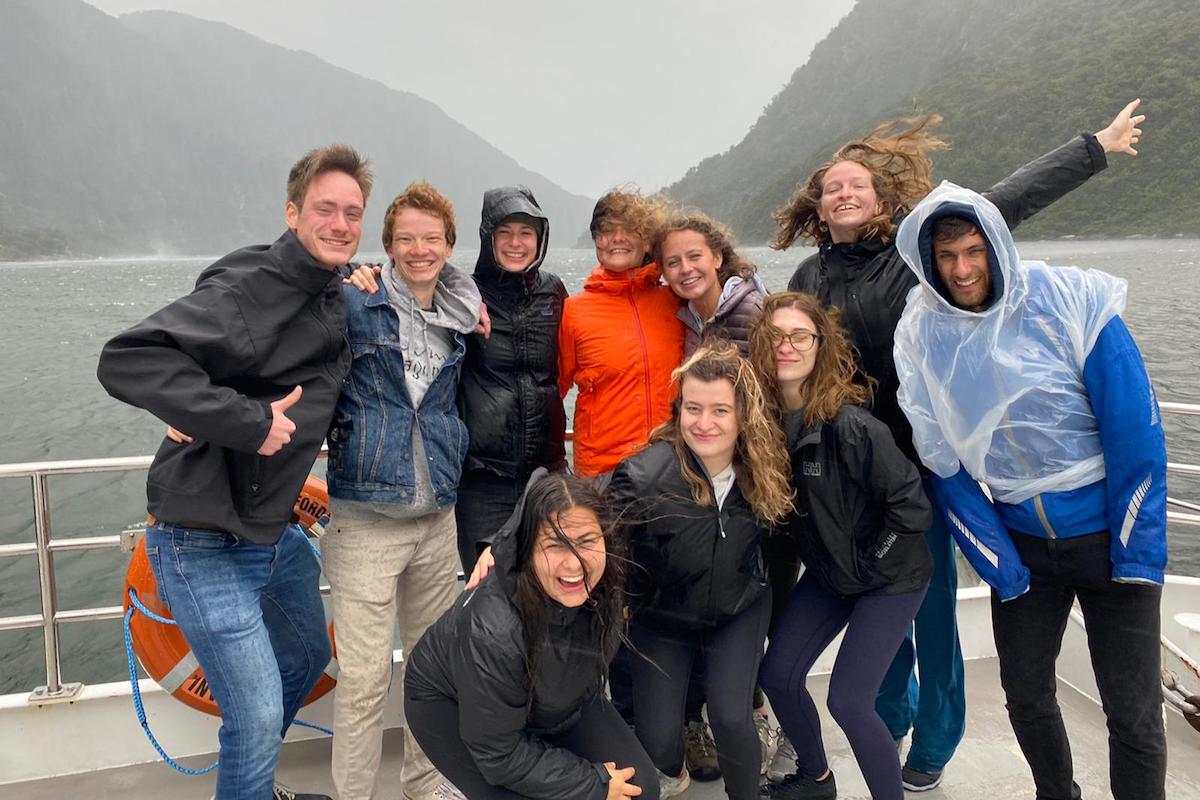When I first arrived in New Zealand in early February, I was excited and nervous to embark on a new adventure of living and learning halfway across the world. New Zealand is a very unique place because it is so isolated, nestled in the middle of the Pacific with less connection to the outside world than I’d expected.
The first I heard about Covid-19 possibly impacting my life was when my friend got news on March 11 that her university in the U.S. was recalling her. We thought this was a joke—as far as we were concerned, life was continuing as normal and New Zealand was the best place to be.
I returned from a weekend tramping (backpacking) trip to an explosion of news from the outside world—most importantly that Dalhousie was recommending all exchange students return. I remember most other friends receiving similar directives as well. I was shocked. Life in New Zealand was as normal as ever—what was there possibly to worry about?

Surely it won't affect us, right?
Two days later I had a phone call with Dal, and I explained that I’d bought a ticket home for March 28 just in case. But in my mind, I was going to cancel it a day before if the situation remained. They were shocked to hear that my university in Wellington was still running, shops were open, and life was normal.
With our impending departure, a group of friends I had met decided to take a trip to the South Island. We boarded an extremely empty flight to an extremely empty Queenstown. At this time, no more foreigners were allowed to enter New Zealand, so we effectively had the tourist town to ourselves. We had an incredible weekend of hikes, bungee jumping, and visiting Fjordland. On Monday, began the most hectic week of our lives.
I awoke from a nap to news that the country was shutting down in 48 hours for the next four weeks. There I was, on the top bunk in a small hostel in Wanaka on the South Island, with no road access to my flat or any international airport. This was when the panic set in—I couldn’t be stuck for four weeks in this hostel, let alone in New Zealand. What if my parents or grandparents got sick and I was stuck and couldn’t return home? My heart was racing. I called my mom in tears, feeling trapped with no idea what to do.

The following day, my friends and I piled into our rental car and drove six hours straight to the nearest big airport in Christchurch. It was an absolute zoo, as everyone was trying to get somewhere within 48 hours. We fortunately talked to a worker who got us onto the next flight to Wellington, which boarded in 30 minutes.
In a panic, I drove to the rental car return, 2.5km from the airport, and hurled the keys at the employee while he informed me that the fastest way to get back to the terminal was to walk because all other services were closed. Walk? In 20 minutes?! I sprinted along the industrial highway with my thumb out just in case (but nobody picked me up) and eventually ran into the waiting area five minutes before boarding. Thankfully I didn’t need to talk to anyone because by this point, I had lost my voice and was worried that they wouldn’t let me board a flight. When we touched down in Wellington, I felt a huge relief, briefly, until it kicked in that if I wanted to leave the country before June 30, I needed to get to Auckland before midnight the following day.
I soon became familiar with the Air New Zealand hold playlist, and fortunately squeezed onto a flight that left at 7pm the following day.
This gave me only a few hours to rest, pack, and say my goodbyes. Wandering around the desolate streets of Wellington offered no closure, and many of my new friends had packed up and left while I was away. A city I had only lived in for three weeks, a school I had only gone to class at for eight days, and people who I was so excited to get to know. I felt robbed of my experience, shortchanged, yet there was nobody and nowhere to channel it towards.
I spent the next two days self-isolating in hotels, bored yet with no motivation to do anything. I couldn’t sleep, could barely eat, and wanted nothing more than to be home. I spent more time calling Air New Zealand as the final leg of my flight kept getting cancelled (I eventually gave up) and spent a few final moments with my friends who were also flying out. Goodbyes were strange. The Auckland airport felt militaristic, and when my plane landed in Vancouver, we all clapped. I never used to understand why people did that.
Focusing on the silver linings
Although I’d been feeling robbed of my typical exchange experience, I was fortunate to be able to get to know people I had only just met on a much deeper lever. Crying together in a hostel all night, being excited to share a dinner with them on my last night in Wellington, and staying up all night trying to comfort each other when you’re all feeling so lost and broken, strengthened our bonds and showed that three weeks is enough time to make lifelong friends under these circumstances.
I’m grateful for the experiences I had, especially the new ones. I can say that I grew up a lot during those three weeks, and I’m proud of the way that I handled the constant hurdles that were thrown in my way. For the kindness I was shown, to everyone who gave me directions and advice, to every granola bar from a stranger when there was nowhere to buy food, and every comforting hug from a friend or classmate, I am thankful. I would not have had such genuine human connections without these stressful circumstances.
I’m now back in Canada and self-isolating. I’m very excited to see my family after isolation, as this experience also showed me how grateful I am for them and that I should never take them for granted.
Despite all of this, I’m glad I went on exchange and strongly recommend it for anyone. You never know what you might learn.

